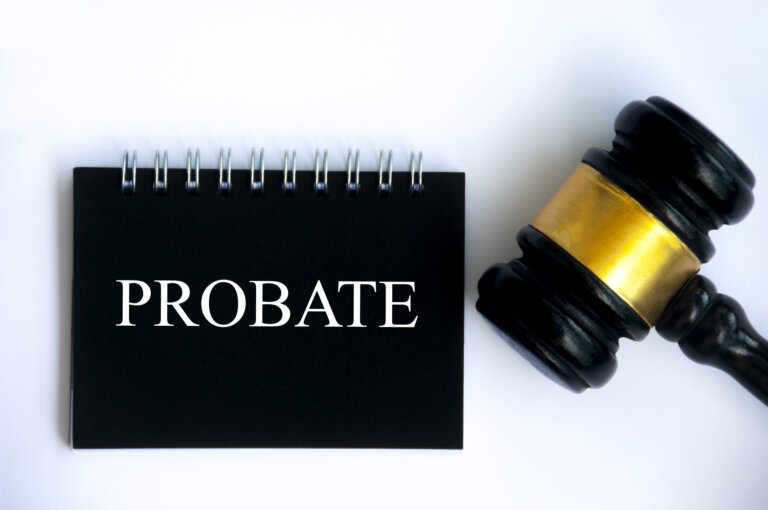If you’re wondering how to avoid probate in Texas, you’re not alone. Many families want to ensure that their loved ones can bypass the often time-consuming and expensive probate process. Thankfully, Texas offers several effective legal tools and strategies to help you achieve this goal. By taking proactive steps now, you can protect your assets and spare your family unnecessary hassle. Let’s dive into some practical methods, real-life examples, and insights on how to avoid probate in Texas.
Understanding Probate in Texas
Before discussing how to avoid probate in Texas, it’s important to understand what probate entails. Probate is the legal process of validating a will, settling debts, and distributing assets to beneficiaries. While it serves a purpose, probate can be costly and lengthy, sometimes dragging on for months or even years. Furthermore, probate is a public process, meaning your estate’s details become part of the public record.
By avoiding probate, you not only save time and money but also maintain privacy for your estate. Let’s explore the top strategies Texans can use to avoid probate altogether.
1. Establish a Living Trust

What Is a Living Trust?
A living trust is one of the most effective ways to avoid probate in Texas. Unlike a will, a living trust allows you to transfer ownership of your assets to a trust while you’re still alive. You can name yourself as the trustee, retaining full control over your assets during your lifetime, and appoint a successor trustee to manage them after your passing.
How Does a Living Trust Work?
Let’s say John, a Texas resident, owns a home, a car, and several investment accounts. He creates a living trust and transfers these assets into it. When John passes away, the successor trustee distributes the assets directly to his beneficiaries without the need for probate.
Benefits of a Living Trust
A living trust offers numerous advantages that make it a valuable tool for estate planning, particularly for those aiming to avoid probate in Texas. Here are the primary benefits explained in greater detail:
- Avoid Probate: Probate can be a lengthy and expensive process, but a living trust circumvents this entirely. By holding assets in the trust, they are not subject to the probate process upon your passing, ensuring a quicker and more seamless transfer to your beneficiaries.
- Flexibility: A living trust is designed to evolve with your needs. As your financial situation or family dynamics change, you can easily modify the trust’s terms, add new assets, or remove old ones. This flexibility ensures that your estate plan stays relevant and effective.
- Privacy: When a will goes through probate, it becomes a matter of public record, exposing the details of your estate. A living trust keeps your financial matters private, safeguarding sensitive information from public access and protecting your family’s confidentiality.
- Efficient Asset Management: In the unfortunate event of incapacitation, the successor trustee you appoint can immediately step in to manage the trust’s assets. This avoids the need for court intervention and ensures your financial affairs are handled according to your instructions.
In summary, a living trust provides unparalleled control, privacy, and efficiency, making it a cornerstone of effective estate planning for Texans looking to avoid probate.
2. Use Beneficiary Designations

Transfer-on-Death (TOD) and Payable-on-Death (POD) Accounts
Another effective strategy for avoiding probate in Texas is designating beneficiaries on financial accounts. Many banks and investment firms offer TOD or POD options that allow you to name beneficiaries who will receive the account’s balance directly upon your death.
For example, Sarah, a retiree in Austin, has a savings account with a POD designation naming her daughter as the beneficiary. Upon Sarah’s death, her daughter can access the funds without going through probate.
Retirement Accounts and Life Insurance Policies
Retirement accounts, such as IRAs and 401(k)s, and life insurance policies also allow for beneficiary designations. Ensure these designations are up-to-date to avoid unintended consequences.
Benefits of Beneficiary Designations
Beneficiary designations are a straightforward yet powerful way to avoid probate in Texas. They ensure your assets are passed directly to the intended recipients without the delays and expenses of probate. Here’s why they are such an essential tool:
- Simple Process: Designating a beneficiary on accounts such as savings, investments, or retirement plans is often as easy as filling out a form. This simplicity makes it accessible to almost everyone.
- Immediate Transfer: Upon your passing, assets with a designated beneficiary are transferred immediately, bypassing the often lengthy probate process.
- No Legal Fees: Since these transfers occur outside the court system, beneficiaries can avoid additional legal costs.
- Flexibility: You can update beneficiary designations as needed, ensuring your plans remain aligned with your current wishes and circumstances.
By utilizing beneficiary designations, you create a seamless and efficient way to transfer assets to your loved ones while ensuring they avoid unnecessary legal hurdles.
3. Leverage Lady Bird Deeds

What Is a Lady Bird Deed?
A Lady Bird Deed, also known as an enhanced life estate deed, is a unique tool available in Texas. This type of deed allows you to retain ownership of your property during your lifetime while naming a beneficiary to inherit it upon your death.
How Does It Work?
Imagine Martha owns a ranch in Texas. She executes a Lady Bird Deed naming her son as the beneficiary. Martha continues to live on and control the property. When she passes away, the ranch transfers directly to her son without probate.
Benefits of Lady Bird Deeds
Lady Bird Deeds are an excellent option for Texans seeking to avoid probate while maintaining flexibility and protecting their assets. Here’s a closer look at why this tool is such a valuable option:
- Avoid Probate: One of the primary benefits of a Lady Bird Deed is that it enables the property to bypass probate entirely. Upon your passing, the property transfers directly to the named beneficiary without the need for court proceedings. This streamlines the inheritance process and saves time and legal costs.
- Retain Control: Unlike some other estate planning tools, a Lady Bird Deed allows you to retain full control of the property during your lifetime. You can sell, lease, mortgage, or otherwise modify the property without needing the approval of the beneficiary.
Lady Bird Deeds are an excellent option for Texans seeking to avoid probate while maintaining flexibility and protecting their assets. However, as with any estate planning tool, it’s crucial to work with an experienced attorney to ensure that your deed is properly executed and aligns with your overall estate planning goals.
4. Joint Ownership with Right of Survivorship

What Is Joint Ownership?
In Texas, joint ownership with right of survivorship allows co-owners to inherit property without probate. When one owner passes away, the surviving owner automatically assumes full ownership of the property.
Benefits of Joint Ownership
Joint ownership with right of survivorship offers numerous advantages for Texans seeking to streamline the transfer of property upon death. Here’s an expanded look at its benefits:
- Seamless Transfer: When one co-owner passes away, the surviving owner automatically inherits full ownership of the property. This happens without the need for court intervention, ensuring a smooth and uninterrupted transfer.
- Avoids Legal Delays: Unlike the probate process, which can take months or even years to conclude, joint ownership ensures that property rights are transferred almost immediately. This is particularly beneficial for families who need swift access to assets.
While joint ownership offers many advantages, it’s essential to consult with an attorney to ensure this arrangement aligns with your broader estate planning goals and complies with Texas property laws.
5. Small Estate Affidavit

What Is a Small Estate Affidavit?
For estates valued under $75,000 (excluding homestead property), Texas law provides a simplified process called a Small Estate Affidavit. This option is only available if the deceased didn’t leave a will or had minimal assets.
Benefits of a Small Estate Affidavit
Using a Small Estate Affidavit can be a game-changer for families navigating the complexities of estate settlement in Texas. Here are some expanded benefits and insights into why this tool is so effective:
- Quick Resolution: The Small Estate Affidavit process is designed to resolve smaller estates efficiently. Instead of enduring the months-long probate process, families can settle the estate in a matter of weeks. This speed is invaluable when immediate access to funds is needed for expenses such as funeral costs or outstanding bills.
- Cost-Effective: Probate can be expensive, with court fees, attorney costs, and administrative expenses quickly adding up. A Small Estate Affidavit eliminates many of these costs, making it an affordable option for families managing modest estates.
- Simplified Legal Process: Unlike formal probate, which requires multiple court filings and appearances, the Small Estate Affidavit involves a straightforward process. Families can typically complete it with minimal legal assistance, reducing stress and complexity.
- Accessibility for Families Without Wills: If the deceased did not leave a will, navigating estate settlement can be particularly challenging. The Small Estate Affidavit provides a clear and accessible path for families to claim assets without the need for formal probate.
- Preservation of Family Resources: By minimizing legal costs and expediting the transfer of assets, the Small Estate Affidavit helps preserve the estate’s value for the beneficiaries. This ensures that more of the deceased’s resources go directly to their intended heirs.
- No Court Supervision: Once approved, the affidavit process ensures the family can access the assets without constant oversight or intervention from the court, providing a more autonomous way to settle smaller estates.
Small Estate Affidavit is an invaluable tool for families dealing with smaller estates. It simplifies the legal process, saves money, and ensures a swift resolution, making it a go-to option for Texans looking to avoid probate.
Conclusion
Avoiding probate in Texas isn’t just about convenience—it’s about ensuring your family’s financial security and peace of mind. By leveraging strategies like living trusts, beneficiary designations, and Lady Bird Deeds, you can save time, money, and stress for your loved ones.
Taking proactive steps today is the key to avoiding probate in Texas. Consult with an experienced estate planning attorney to ensure your plan is comprehensive and legally.








